Harvest Time for Community Garden in Kemenuh Village
Since May, IDEP has assisted seven groups in Kemenuh village, Bali, to develop a permaculture-based community garden. After three months of assistance, one of them has made their first harvest in the third week of August. Meanwhile, the rest is on progress and still waiting for their turn.
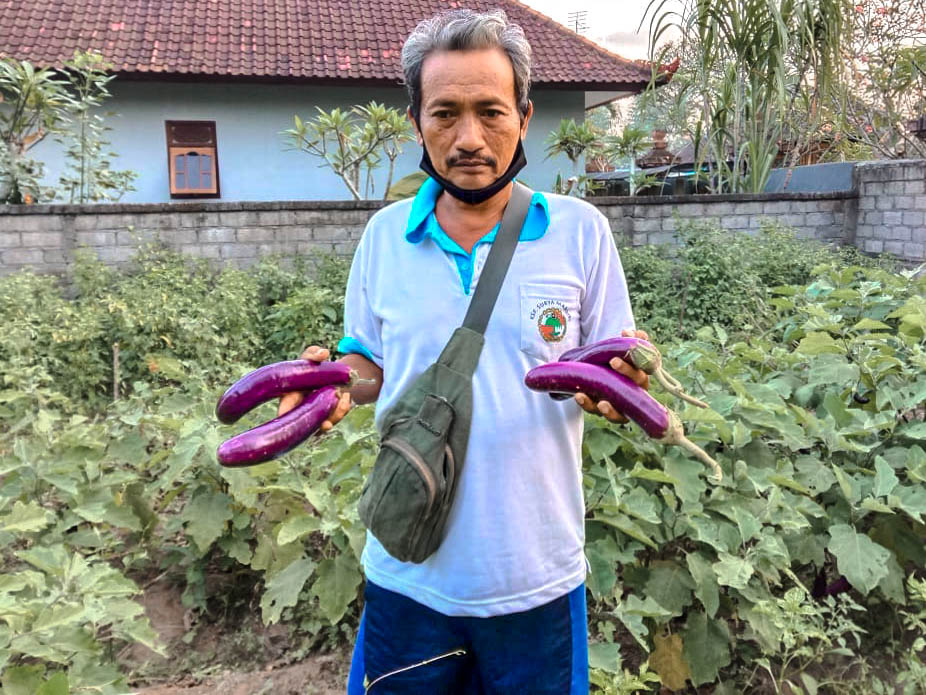
One of the members who manage the community garden in Kemenuh Kelod hamlet shows eggplants he just has picked (Photo: Wayan Suartana)
As IDEP visited one of the gardens in Kemenuh Kelod hamlet on Friday (28/8), several members of the groups are picking eggplant, chili, and tomato. By them, the crops were then distributed to all the households who have involved in garden development. However, prior to distribution, a small number of the crops were firstly taken as offerings for religious ceremonies in the village temple.
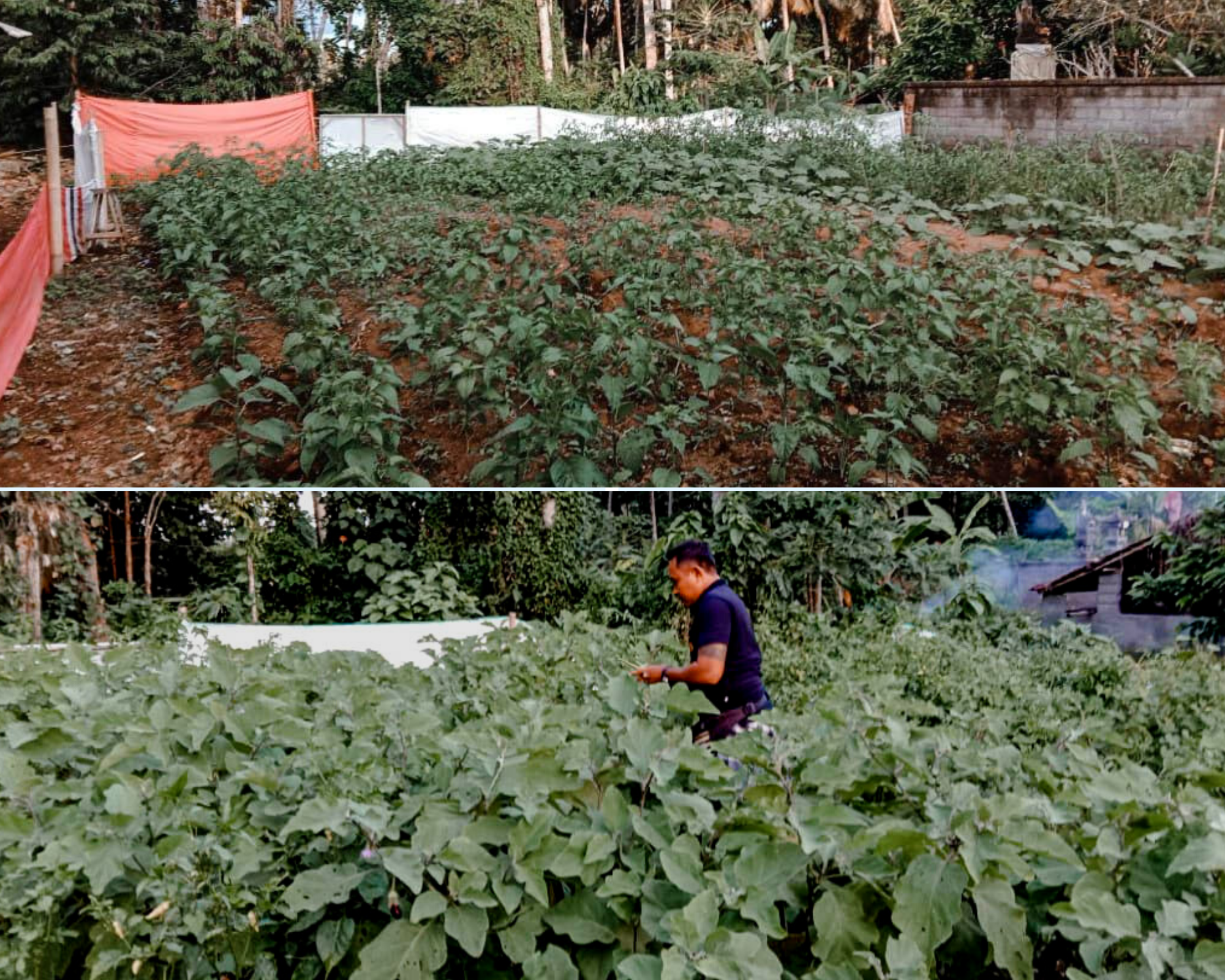
These photos show how the community garden in Kemenuh Kelod hamlet has been improving in three months. The first photo was taken in the first month after the garden planted, while the second one was in the third month (Photos: Wayan Suartana)
There are about 15-20 people who manage the garden consecutively. Each of them, mostly young people, represents a household. Apart from the crops mentioned, the groups are also waiting for shallot and papaya to be harvested.

Members of the community garden in Tengkulak Kaja hamlet are cleaning the beds. They have planted the garden with tomatoes, chili, and eggplants (Photo: Wayan Suartana)
The community garden assistance is part of IDEP emergency response towards the COVID-19 pandemic that has impacted the Balinese community in every aspect, most economically. When most of the people in Bali have lost their job and daily income due to the pandemic, the community in Kemenuh village have initiated to manage garden as an alternative to meet their families daily needs for food.
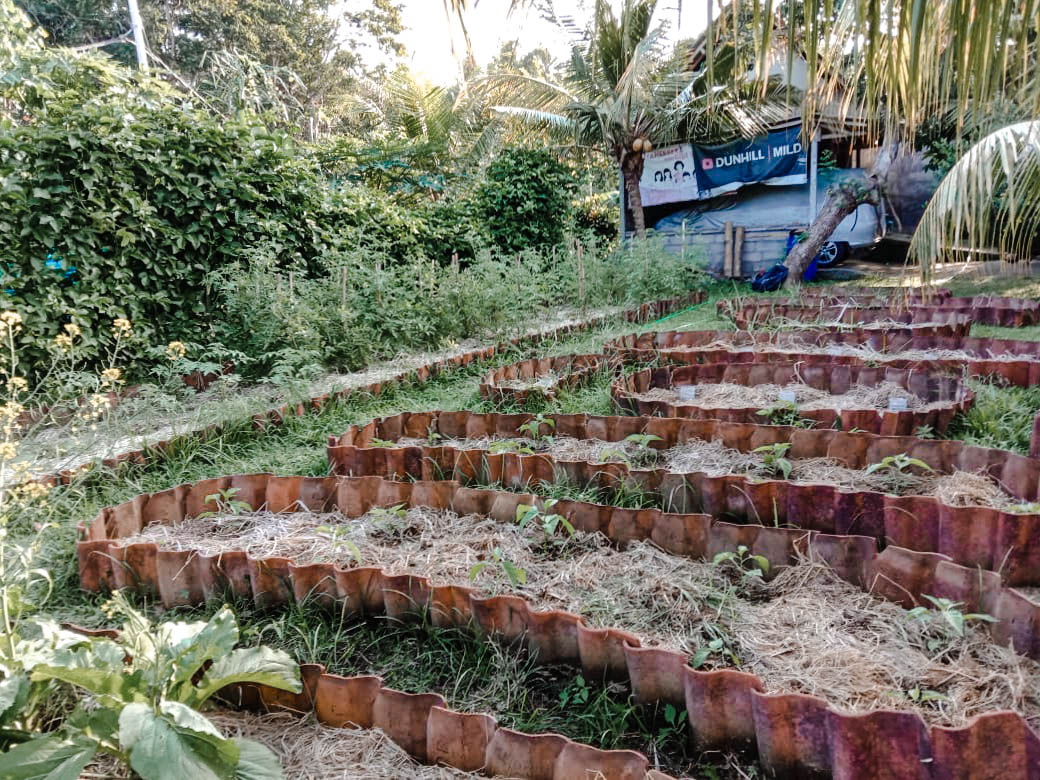
The community garden in Sumampan hamlet. Tomatoes are just waiting to be harvested in two weeks, while chili, eggplants, and Chinese cabbage are still growing (Photo: Wayan Suartana)
Given that this pandemic brings uncertainty to their job in the tourism industry, they settled an agreement between them to manage the community garden by utilizing some abandoned land around them. Some of the lands belong to individuals, while some of them registered under the customary land.
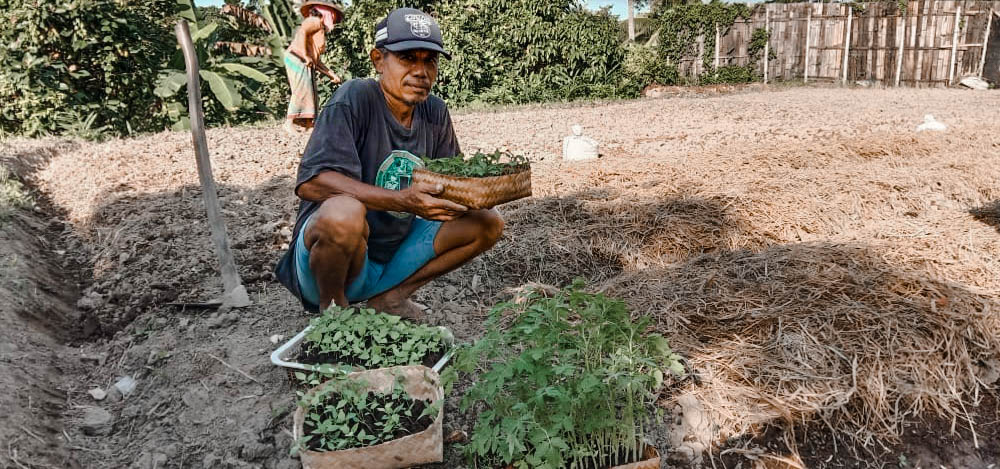
Every group who manage community garden receives seeds and seedling as part of IDEP support (Photo: Wayan Suartana)
Seven groups are interested and then involved in this initiative. Each of them represents a hamlet. By managing the garden, the community in each hamlet is expected to have free access to food in a self-sufficient way.
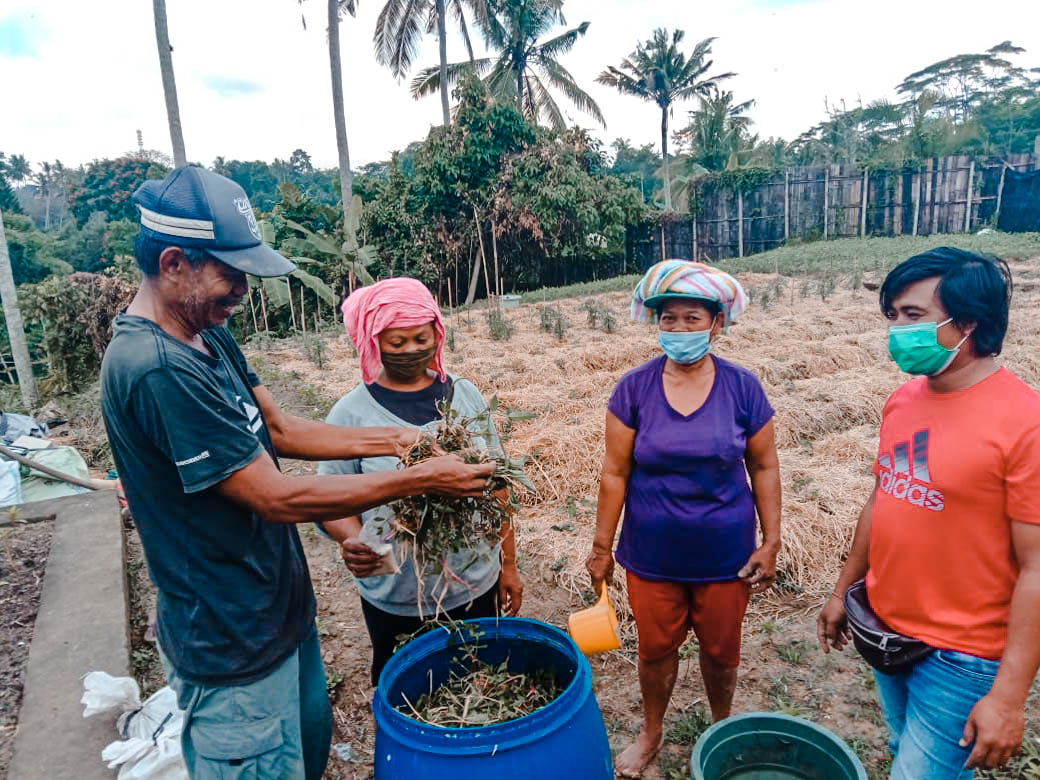
The groups have participated in several short training on how to manage a permaculture-based garden. One of the training is how to produce their non-chemical liquid compost (Photo: Wayan Suartana)
To support the initiative, IDEP assists them in how to manage a permaculture-based community garden. The assistance, that is provided until 31 August 2020, includes garden assessment and recommendation, distribution of garden kit, short training, distribution of seeds and seedlings, planting supervision, monitoring, and evaluation. Since then, the communities have developed the garden and made progress. They plant what they need in the garden such as vegetables and seasoning plants.
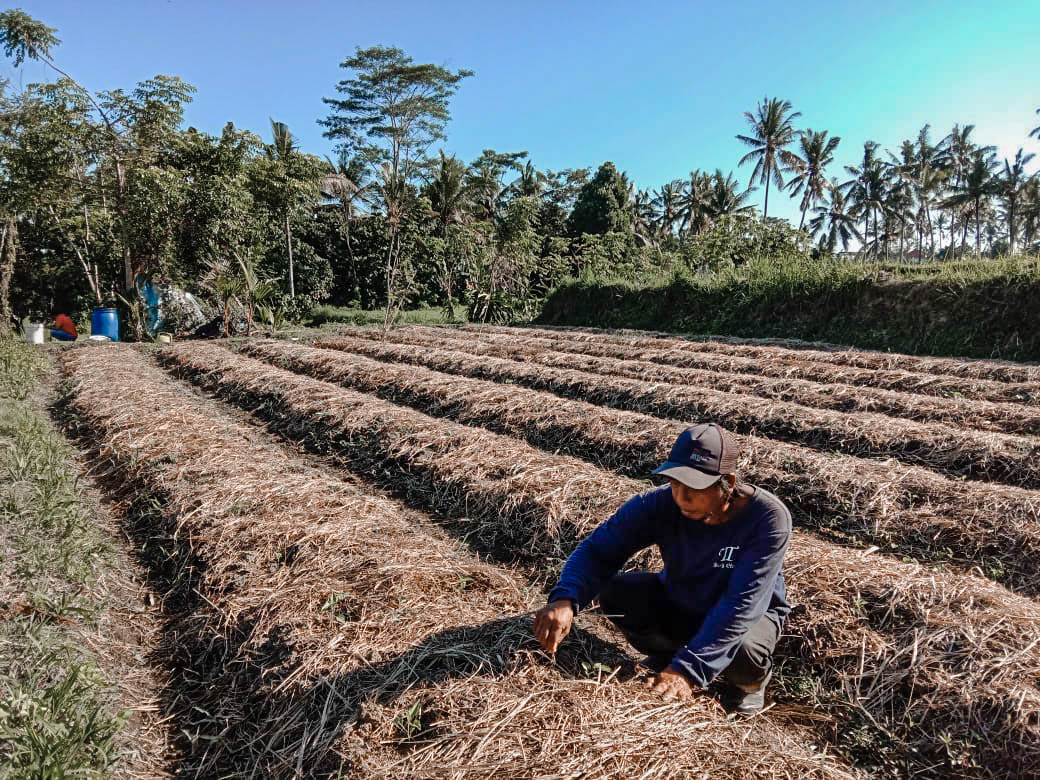
A member of ommunity garden in Tengkulak Tengah hamlet shows the growing eggplants (Photo: Wayan Suartana)
Thanks to medico international for supporting this emergency response. Visit IDEP on Facebook Page for more stories and photos. (Ed)
Berlangganan Buletin IDEP
Berikan bantuan yang akan merubah hidup. 100% mendanai proyek amal.
|






